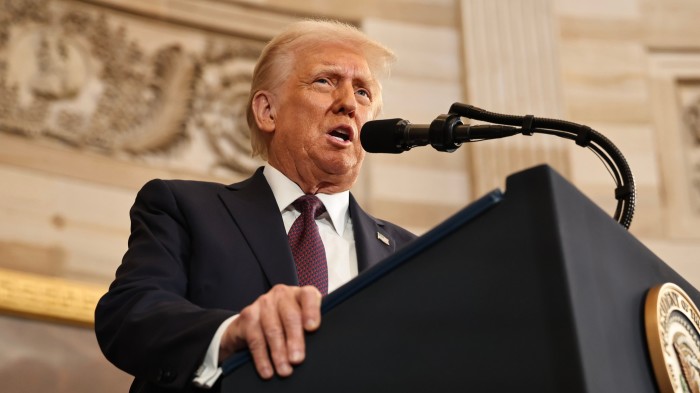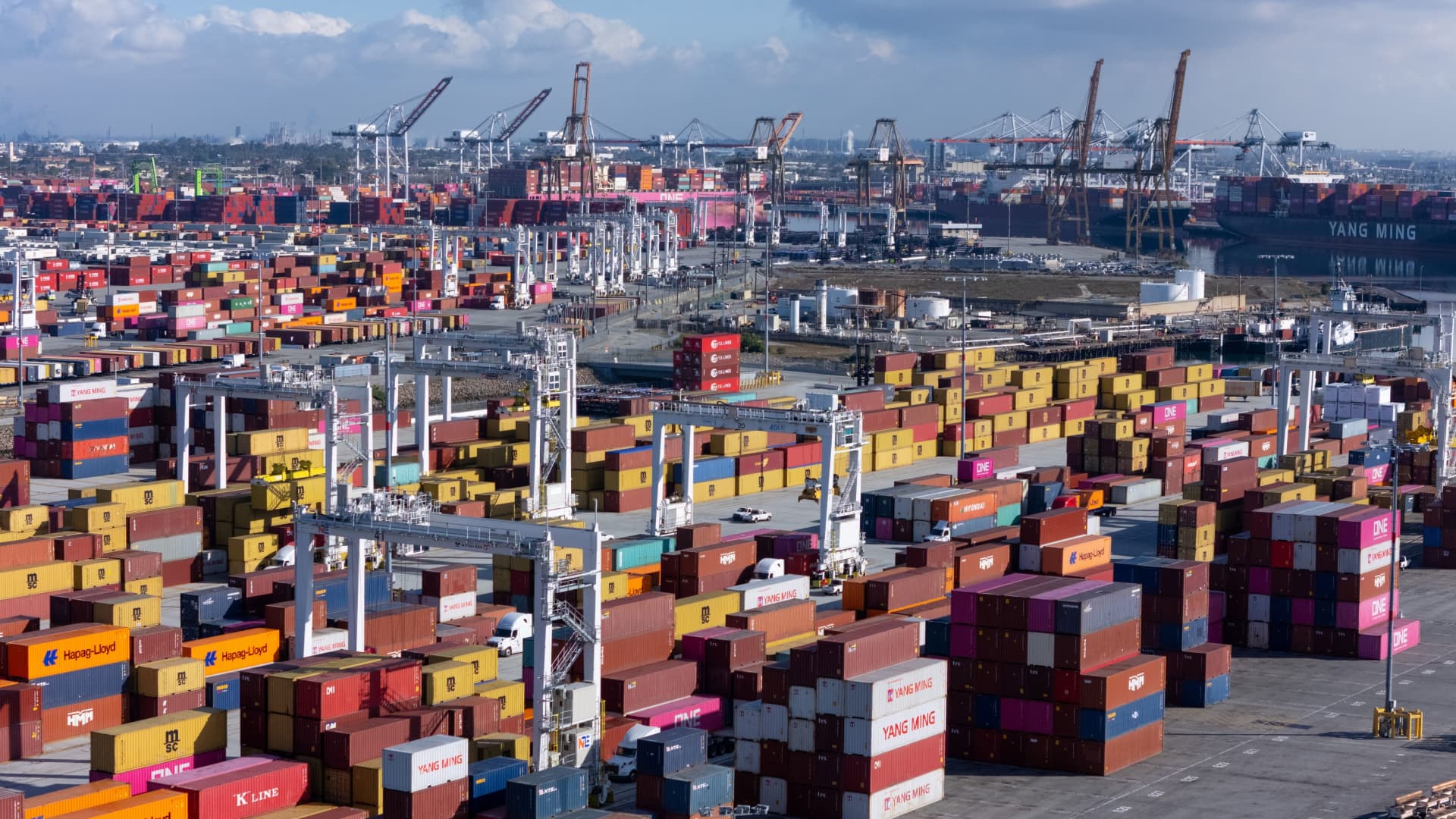Navigating the Trade Minefield: Strategies to Mitigate Trump’s Impact
As trade tensions rise under Donald Trump’s policies, businesses and governments find themselves in a complex and often unpredictable landscape. The implications of these trade policies are profound, affecting supply chains, pricing strategies, and global market dynamics. Understanding how to navigate this trade minefield is crucial for organizations aiming to mitigate potential risks and capitalize on emerging opportunities. In this article, we will explore effective strategies to minimize the fallout from escalating trade wars, drawing insights from experts in international trade and economic policy.
Understanding the Trade Minefield
The term “trade minefield” aptly describes the precarious situation that businesses face in recent years. With tariffs, sanctions, and shifting trade agreements proliferating, the landscape has become tumultuous. Under Trump’s administration, several key policies have shaped this environment:
- Imposition of Tariffs: The introduction of tariffs on steel, aluminum, and various consumer goods has raised costs for manufacturers and consumers alike.
- Withdrawal from Trade Agreements: The U.S. exit from the Trans-Pacific Partnership (TPP) and renegotiation of NAFTA into the USMCA has altered trade dynamics significantly.
- Increased Trade Tensions: Ongoing disputes with major trading partners, particularly China, have led to retaliatory tariffs that further complicate international trade.
These factors contribute to an environment where businesses must be agile and strategic to survive. Here are some strategies organizations can adopt to navigate the trade minefield effectively.
Strategies for Businesses
1. Diversifying Supply Chains
One of the most effective strategies to mitigate risks associated with Trump’s trade policies is to diversify supply chains. Relying heavily on a single country or region can expose businesses to significant vulnerabilities.
- Identify Alternative Suppliers: Companies should actively seek suppliers in different countries to reduce dependence on those affected by tariffs.
- Invest in Local Production: Establishing manufacturing facilities closer to key markets can help mitigate the impact of tariffs and transportation costs.
2. Engaging in Strategic Planning
Strategic planning is essential in a volatile trade environment. Businesses should regularly assess their market positions and potential risks.
- Scenario Analysis: Conducting scenario analyses can help organizations anticipate potential changes in trade policy and prepare accordingly.
- Flexible Pricing Strategies: Companies might consider implementing flexible pricing strategies to quickly respond to fluctuations in tariffs and costs.
3. Building Strong Relationships with Stakeholders
Strong relationships with stakeholders such as suppliers, customers, and government entities can provide businesses with valuable insights and support during turbulent times.
- Open Communication: Keeping lines of communication open can foster better collaboration and understanding among partners.
- Advocacy and Lobbying: Engaging with industry groups and lobbying for favorable trade policies can help influence decision-makers.
4. Investing in Technology and Innovation
Technology can be a game-changer for businesses navigating the complexities of trade wars. Investing in innovative solutions can streamline operations and enhance competitiveness.
- Automation: Implementing automation can reduce labor costs and improve efficiency, helping companies offset increased tariffs.
- Data Analytics: Utilizing data analytics can provide insights into market trends and consumer behavior, allowing for more informed decision-making.
Strategies for Governments
1. Strengthening Trade Relationships
Governments play a crucial role in mitigating the impact of trade tensions. Strengthening trade relationships with allies can help counterbalance adverse effects from aggressive trade policies.
- Negotiating New Trade Agreements: Seeking new trade agreements with countries that share mutual interests can open up new markets for exporters.
- Reinforcing Existing Alliances: Strengthening ties with existing allies can provide a united front against unfair trade practices.
2. Supporting Affected Industries
Governments should also take proactive steps to support industries adversely affected by trade policies.
- Financial Assistance Programs: Implementing financial assistance programs can help businesses manage increased costs and maintain competitiveness.
- Training and Development: Providing training and development programs can help workers transition into new roles and industries as markets shift.
3. Promoting Domestic Production
Encouraging domestic production can mitigate the reliance on imports and create jobs within the country.
- Incentives for Local Manufacturing: Tax incentives for companies that manufacture locally can stimulate job growth and economic development.
- Investment in Infrastructure: Improving infrastructure can facilitate smoother logistics and reduce costs for domestic producers.
4. Ensuring Transparency in Trade Policies
Transparency in trade policies is vital for businesses to plan effectively. Governments should strive to communicate changes in trade regulations clearly and promptly.
- Regular Updates: Providing regular updates on trade policies can help businesses adapt and make informed decisions.
- Public Consultation: Engaging in public consultations can gather input from stakeholders and ensure that policies reflect the needs of the economy.
Conclusion
Navigating the trade minefield created by Trump’s policies requires a multifaceted approach. By adopting strategies such as diversifying supply chains, engaging in strategic planning, building strong relationships, and investing in technology, businesses can position themselves to withstand the pressures of escalating trade tensions. Meanwhile, governments can play a supportive role by strengthening trade relationships, aiding affected industries, promoting domestic production, and ensuring transparency in trade policies.
As the global trade landscape continues to evolve, remaining proactive and flexible is key. Organizations that embrace these strategies will not only mitigate the impact of trade wars but may also uncover new opportunities for growth and innovation. In the end, navigating this trade minefield is not merely about survival; it’s about thriving in an era of uncertainty.
See more CCTV News Daily



